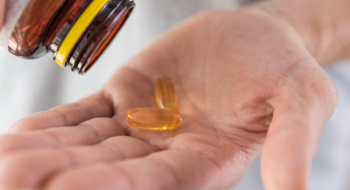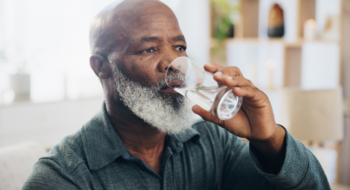Whether it’s spending a day on the beach, golfing, exploring nature trails or enjoying other outdoor activities, there are plenty of ways to get active outdoors during the summer. But for those taking mood medications, you could be more susceptible to heat-related illnesses.
According to the National Institute of Health, one in six Americans take medication to treat depression, anxiety, schizophrenia, bipolar or other conditions.
Medications like serotonin reuptake inhibitors (SSRIs), serotonin norepinephrine reuptake inhibitors (SNRIs), tricyclic antidepressants (TCAs) and medications that help reduce anxiety such as benzodiazepines can interfere with the activity of the hypothalamus – a part of the brain that helps regulate temperature, heart rate, blood pressure and thirst.
“Mood medications can influence the body’s ability to regulate temperature,” says Tidelands Health family medicine physician Dr. Sean Nguyen, who sees patients at Tidelands Health Family Medicine at The Market Common. “Some medications can impair sweating or alter heat perception, making individuals more vulnerable to heat-related illnesses such as heat exhaustion and heat stroke.”
Symptoms of heat exhaustion and heat stroke can be exacerbated by these medications, which affect thermoregulation, according to Dr. Nguyen.
“Dehydration can worsen the effects of heat on the body,” he says. “It’s crucial you’re rehydrating, even if you don’t feel thirsty or aren’t sweating. Lack of sweating could be an indication that your body is struggling to regulate its temperature.”
Symptoms of heat exhaustion include:
- Dizziness, light-headedness
- Fever, usually over 100 degrees Fahrenheit
- Blurred vision
- Headache
- Fatigue and weakness
- Nausea and vomiting
- Weak, fast heartbeat
“If you experience any of these symptoms, you should get to a cool area as soon as you can, take small sips of water and seek prompt medical attention if your symptoms don’t improve after about an hour of rest and fluids, or if you vomit more than once,” says Dr. Nguyen.
Heat exhaustion can progress to heat stroke, which can be life-threatening or cause permanent damage. Heat stroke symptoms include confusion and loss of consciousness in addition to those of heat exhaustion.
Call 911 immediately and move the person to a cooler area, removing any extra layers of clothing and keeping them cool by applying water or ice to the skin. Most people with heat stroke have an altered level of consciousness and cannot safely be given fluids to drink.

To prevent heat-related illnesses, adjust outdoor activities to avoid the hottest parts of the day, wear lightweight, breathable clothing and listen to your body.
It’s important to discuss with a qualified health care provider whether any medications you’re taking increase your susceptibility to heat-related illnesses.







